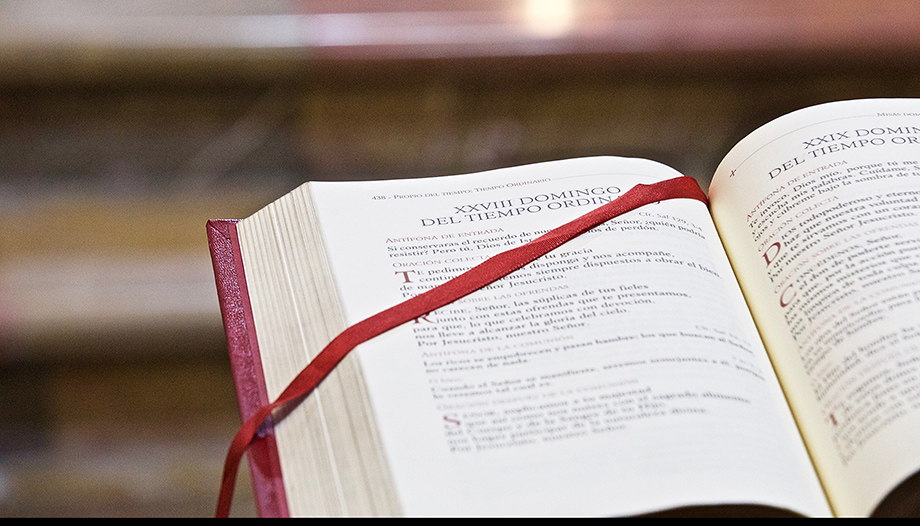Several Old Testament passages make it clear that control of the sea was a divine prerogative.
In general, the Jews viewed the sea with fear: it represented chaos and was the domain of such terrifying sea monsters as Leviathan (see Job 41). But several psalms express God's control over the seas and waves: see Psalms 89, 9, 93, 4 and, above all, 107, 28-29, which is part of today's psalm. But they cried out to the Lord in their distress, and he plucked them out of trouble. He stilled the storm in a gentle breeze, and the waves of the sea were stilled.
This can help us understand the astonishment of the disciples, described in today's Gospel, when Jesus calms the waves. "They were filled with fear and said to one another, "But who is this? Even the wind and the sea obey him!".
In other words, they were beginning to glimpse the divine power of Jesus. That he could calm the waves with a few words: "Silence, be silent!", -He could only suggest that he himself was divine in some way. Only God can set the limits of the sea (as today's first reading teaches) and only He can calm its fury.
This episode is one of those ways by which, with divine pedagogy, Christ gradually revealed his divinity to his disciples. If he had tried to do it all at once at the beginning of his ministry, either they would not have believed him, or, if they had accepted it, they would have thrown themselves to the ground before him and would not have dared to get up. God shows his power both by revealing and concealing it, as when he gave Moses only a glimpse of his divine glory, for that was all he could bear (vid. Exodus 33).
Jesus' apparent sleep in the boat was certainly a sign of his real humanity. He had given himself so much to the crowds that he was exhausted, so tired that he could sleep in the middle of a storm. But it also revealed his divinity. For God is the best possible teacher, who watches over and reveals his power according to our weakness and need.
But divine creation goes beyond the material universe. In fact, his spiritual creation, or re-creation, is an even greater work. As today's second reading teaches us, to be "in Christ" is to be "a new creation." God recreates us by grace. As prodigious as Jesus' power over visible creation is, he shows his power even more by transforming us through grace. He calms the storms of passion and evil in our lives so that we can live in the peace of divine love.
Homily on the readings of the XII Sunday in Ordinary Time (B)
The priest Luis Herrera Campo offers its nanomiliaA short one-minute reflection for these Sunday readings.









